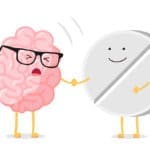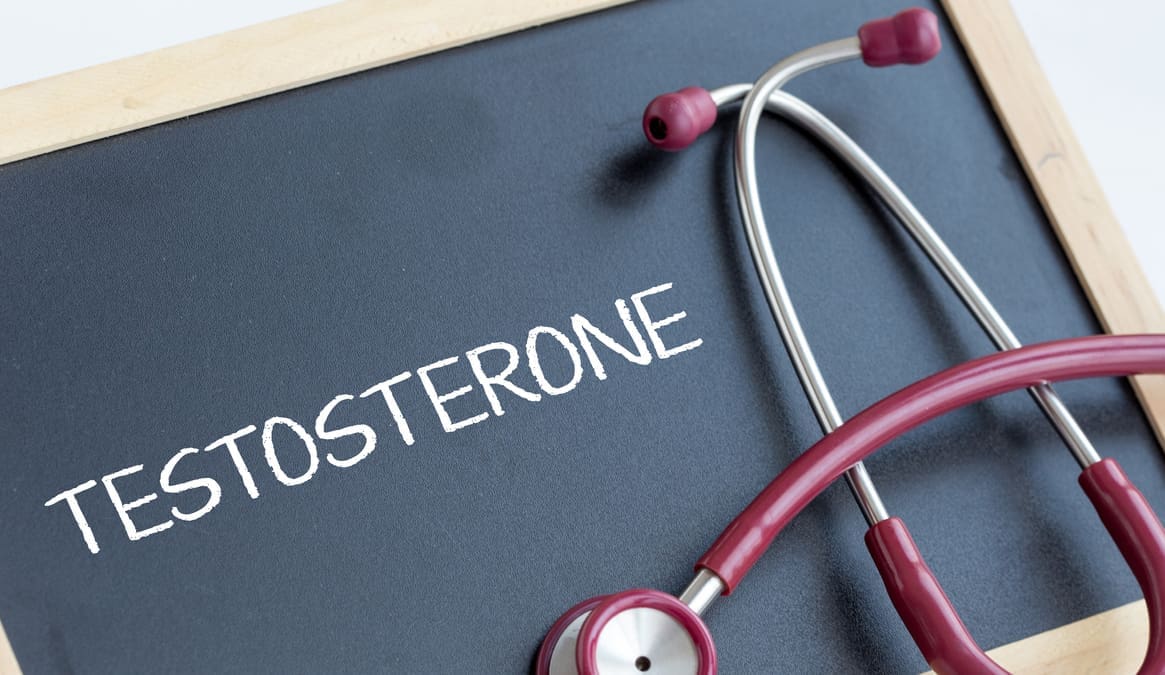Testosterone was once a common treatment option for depressed men around 60 years ago. After antidepressant drugs were introduced over the years, doctors stopped prescribing testosterone. Now, new studies have shown that testosterone may help men with depression symptoms.
Studies have shown that men who have taken testosterone for depression have seen improvements in:
- Energy
- Overall Mood
- Sleep
- Libido
Using testosterone to treat depression is controversial. While there are some positive results, there are still many other research studies that need to be conducted to prove conclusively how testosterone should be used to treat men with depression.
How Low Testosterone May Cause Depression
Testosterone is a hormone produced primarily in the testicles. It is responsible for the maintenance of:
- Bone density
- Fat distribution
- Muscle strength and mass
- Facial and body hair
- Red blood cell production
- Sex drive
- Sperm production
Testosterone levels are at their peak during puberty and early adulthood and then they start to decrease with age about 1% a year after the age 30 or 40. Low testosterone levels can cause changes in sexual function, physical changes and emotional changes.
The association between testosterone and depression has been debated because testosterone is a neuroactive steroid hormone influencing mood and appetitive behavior. Research suggests that low testosterone levels may be a cause of depression in some men. A 2016 study found that low serum testosterone was associated with an 86% increased risk of depression in older men.
Research on How Testosterone May Help Men With Depression
Testosterone can now be administered via injection, pill, patch or gel, which has allowed studies to be more easily conducted.
Rodent models of depression have shown that testosterone treatment has increased serotonin release and establishment of new neuronal connections, both of which can alleviate the symptoms of depression.
There have been a number of studies over the years about how testosterone may help men with depression, but knowledge is still limited. In 2003, Dr. Harrison Pope studied 22 men aged 30-65 with low testosterone levels over 8 weeks. Testosterone gel, added to the subjects’ existing antidepressants, proved significantly superior to placebo in reducing scores on two depressions rating scales (the Hamilton Depression Rating Scale and the Clinical Global Impression severity scale), although not on another depression rating scale (the Beck Depression Inventory).
A 2019 systematic review of 27 placebo controlled clinical trials with 1890 men concluded that testosterone treatment was associated with a reduction of depressive symptoms. The evidence supports the clinical use of testosterone as a treatment for depression, but there needs to be more research conducted surrounding the efficacy and dosage regimens. While this meta-analysis showed promising results, such as mood benefits in younger and older men, it’s important to remember that this was an amalgamation of many different studies that all had varying factors. For example, some of the men had low testosterone levels, while others didn’t; some were on antidepressants, while others weren’t; and some had been diagnosed with depression, while others only had symptoms.
Risks of Testosterone Supplementation Prolonged use of testosterone is associated with health risks, including:
- Stimulating noncancerous growth of the prostate (benign prostatic hyperplasia) and growth of existing prostate cancer.
- Worsening sleep apnea.
- Acne or other skin reactions.
- Enlarging breasts.
- Limiting sperm production or causing testicles to shrink.
- Stimulating too much red blood cell production, which contributes to the increased risk of blood clots and pulmonary embolisms.
- Some research shows that there is an increased risk of heart disease.
These risks make many health professionals reluctant to prescribe testosterone.
Conclusions
Due to the limited nature of research and the risks, testosterone treatment of depression must still be considered an experimental procedure. Despite the potential promise, the available literature of controlled studies of testosterone in depression remains extremely limited. It appears that testosterone might most likely show benefit as an augmentation strategy in men who exhibit low or borderline testosterone levels and who show only a partial response to conventional antidepressants.
Treat Your Depression With Mid City TMS Today
In order to fully understand the role of testosterone in depression and if testosterone is a long-term viable treatment option, there will be a need for more research to be conducted. In contrast to testosterone supplementation, transcranial magnetic stimulation (TMS) is a treatment for depression that has been definitively proven to be effective and safe. TMS is an outpatient procedure that uses magnetic stimulation to help treat depression symptoms. If you’ve tried other depression treatments and they haven’t worked for you, consider visiting Mid City TMS. You can contact us with any questions you may have and we can discuss treatment options.



